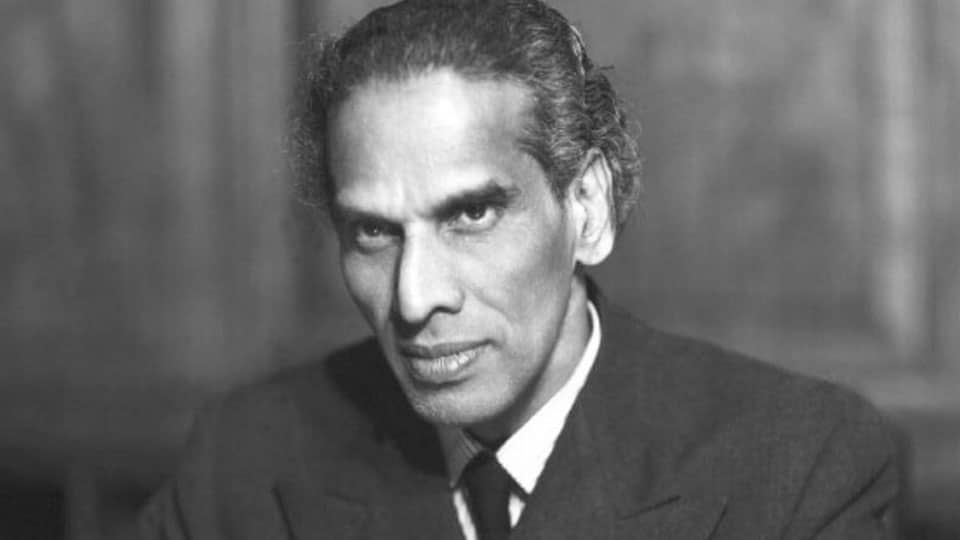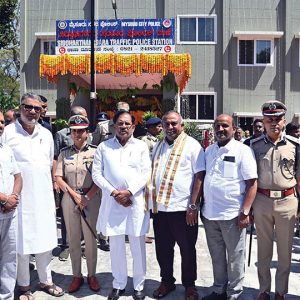By T.J.S. George
In the 1950s, the Urbs Prima in Indies was Bombay, not Delhi. All important people lived there, all influential newspapers were published there, all ideological battles were fought there. Into this theatre of war came V.K. Krishna Menon, all guns blazing. The theatre of the absurd followed. Krishna Menon was a Congressman and friend of Jawaharlal Nehru, but Bombay’s Congress bosses saw him as a pretender, an imposter. He was dubbed the worst thing a human being could be — a Communist. He became an untouchable to all those who were touchable. Yet he got elected from North Bombay in 1957. Five years later, he repeated that triumph in sensational style, defeating Acharya Kripalani who was backed by all those who mattered in Bombay.
So what was behind this wunderkind, abhorred by half the world and applauded by the other half? There have been several biographical studies of him, but none gave a satisfactory answer. This includes the biography I wrote (was it the first one?) more than half a century ago. Mine was a partisan account, defending him against his detractors. What can be called a definitive biography has now come out. A Chequered Brilliance: The Many Lives of V.K. Krishna Menon by Jairam Ramesh is voluminous, spread across 698 pages of text plus Notes plus Bibliography plus Index.
Ramesh is an experienced biographer (Indira Gandhi, P.N. Haksar). This time, taking advantage of the unusual scope of his subject, he has chosen to play the role of Sutradhar, an anchor-compere. The lead player Krishna Menon and supporting cast comprising Jawaharlal Nehru et al, are given the freedom to deliver their own dialogue in their own idiom. The result is a biography that is unusual in range, in tone, in breadth. It is a survey of history, at once fresh and fascinating. (Editing slips here and there will hopefully keep the evil eye away).
What makes this book unique is the archival material the author has tracked down. Nehru papers alone were a rich source. Of the 95 volumes released so far, 65 came out after the mid-1990s. Correspondence with Krishna Menon constituted the bulk of this literature. Unpublished details were also culled from the annals of various countries, from Russia and China to Canada and Australia.
What comes through it all is that in the fight for Independence and the shaping of the Republic in its early years, Krishna Menon’s place was alongside Gandhiji, Nehru, Patel and Azad. Those brought up on the legend that Krishna Menon was an evil genius, a Rasputin, will find this difficult to stomach. Even Ramesh feels obliged to declare that “this biography does not intend to eulogise Krishna Menon.” Given the seminal nature of his contributions, a bit of eulogising is in order. Let’s admit it without ifs and buts: Krishna Menon is one of the makers of India. The roles he played, not only in India before and after Independence but also in issues ranging from Korea and Vietnam to Suez and Hungary, come alive in the pages of this book, thanks to the technique the author has followed — reproducing letter after letter. The reader gets the feeling that he is listening to Krishna Menon explaining every crisis of the world and the steps he took in the name of India to resolve it.
Menon’s correspondence with Nehru shows the great influence he exerted on Nehru from early on, and also, after Independence, the frustrations Nehru felt about Krishna Menon’s attitudes in some official matters, especially when he was High Commissioner in London. At one stage, Menon protested against Nehru’s “cruel letters” and Nehru virtually relieved his friend of the High Commissioner post and “ordered” him to go to Switzerland for treatment. In May 1952, on a day Ramesh describes as “the darkest day in Krishna Menon’s life,” he wrote several letters “on the theme of death — verging on the suicidal — to some of his close family and friends.” Some of the letters, as reproduced in the book, are scary to read. To his sister: I hope for forgiveness for what I am about to do. To India League associate: Please do not grieve for me. To the lady he admired: I am going for good.
Fortunately, the emotional Menon surrendered to the logical Menon. Jairam Ramesh presents Krishna Menon’s chequered career and the many lives he lived in virtually Krishna Menon’s own words. This makes for an arresting narrative that leaves the reader saying to himself: What a man, what a life.








Recent Comments